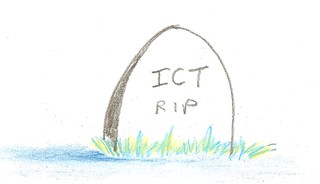 Describing itself as being on the ‘networked’ stage of the continuum, Scargill school’s current Bring Your Own Technology model consists of utilising a wide range of mobile devices in school in order to enhance and support the learning in the classroom. It started with Nintendos approximately 6 years ago. But what prompted Scargill to consider a BYOT approach in the first place?
Describing itself as being on the ‘networked’ stage of the continuum, Scargill school’s current Bring Your Own Technology model consists of utilising a wide range of mobile devices in school in order to enhance and support the learning in the classroom. It started with Nintendos approximately 6 years ago. But what prompted Scargill to consider a BYOT approach in the first place?BYOT Case Study: Scargill Junior School
 Describing itself as being on the ‘networked’ stage of the continuum, Scargill school’s current Bring Your Own Technology model consists of utilising a wide range of mobile devices in school in order to enhance and support the learning in the classroom. It started with Nintendos approximately 6 years ago. But what prompted Scargill to consider a BYOT approach in the first place?
Describing itself as being on the ‘networked’ stage of the continuum, Scargill school’s current Bring Your Own Technology model consists of utilising a wide range of mobile devices in school in order to enhance and support the learning in the classroom. It started with Nintendos approximately 6 years ago. But what prompted Scargill to consider a BYOT approach in the first place?









